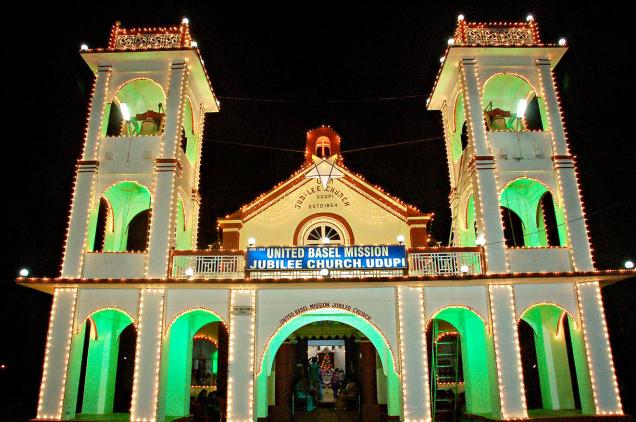
Bangalore, January 28: In a judgment that will have far-reaching impact on the administration of church properties in Dakshina Kannada and Kodagu districts, the Karnataka High Court has declared that the Church of South India (CSI) and the CSI Trust Association have no right to manage the properties of the United Basel Mission Church in India (UBMC) – South Canara and Coorg.
Ruling that the CSI and its agencies/representatives were administering and managing about 1,500 properties of the UBMC in “breach of trust” and “without any legal right for the past about 40 years,” the High Court removed them from the control/trusteeship of these properties.
These properties include prominent church buildings, prayer halls, graveyards, schools, hospitals, theological seminary, hostels, homes for the poor, widows and sick, and residents for missionaries.
In its recent judgment, a Division Bench, comprising Justice N. Kumar and Justice A.N. Venugopala Gowda, also directed the CSI and its representatives to submit accounts of income and expenditure of these properties from the day they assumed the office of trustee of these properties, besides handing over the properties to the trustees to be appointed by the district court.
The Bench passed the verdict while allowing the pleas of Christopher Karkada and others (beneficiaries of the UBMC) claiming that these properties belong to the public, charitable and religious trust formed by the UBMC during pre-Independence, and transfer of absolute ownership of these properties to the CSI in the guise of merger of the UMBC with the CSI was illegal.
The Bench found that the UBMC had created the trust — UBMC Trust Association — in 1930s and transferred all properties to it. However, the UBMC in 1957 revoked the trust, and in 1972 the UBMC Trust Association itself was wound up. Meanwhile, the UBMC, in 1972, transferred the properties to the CSI Trust Association.
Public trust
While declaring the UBMC Trust Association as a “public trust,” the Bench held that the creator/author of a public trust had “no right to revoke the public trust” and hence the UBMC's action of revoking the UBMC Trust Association was null and void ab initio. Consequently, the Bench said, transfer of properties by the UBMC to the CSI Trust Association in 1970s also had no recognition in law and hence these transactions were null and void. The Bench turned down the contention of the CSI that it was a private trust.
The Bench also pointed out that the CSI and its agencies had alienated some of these properties when an interim order of the court prohibiting such alienation was in force and hence such alienation too had no recognition in law.
Breach of trust
“The CSI/CSI Trust Association is not entitled for possession of these properties…. They got into possession through documents having no legal recognition…and acting as trustees of properties. Because of the assertion of title in respect of the properties and alienating the properties belonging to the UBMC Trust Association, it committed breach of trust,” the Bench held.
The High Court also directed the district court in Mangalore to form a scheme for the proper administration and management of properties of the UBMC by appointing nine trustees as the UBMC Trust Association is not in existence now.
Meanwhile, on a request by the CSI, the Bench gave 90 days' time for implementation of the verdict to enable the CSI to file an appeal in the Supreme Court. However, during this period the CSI and its agencies cannot alienate any property.





Comments
Add new comment